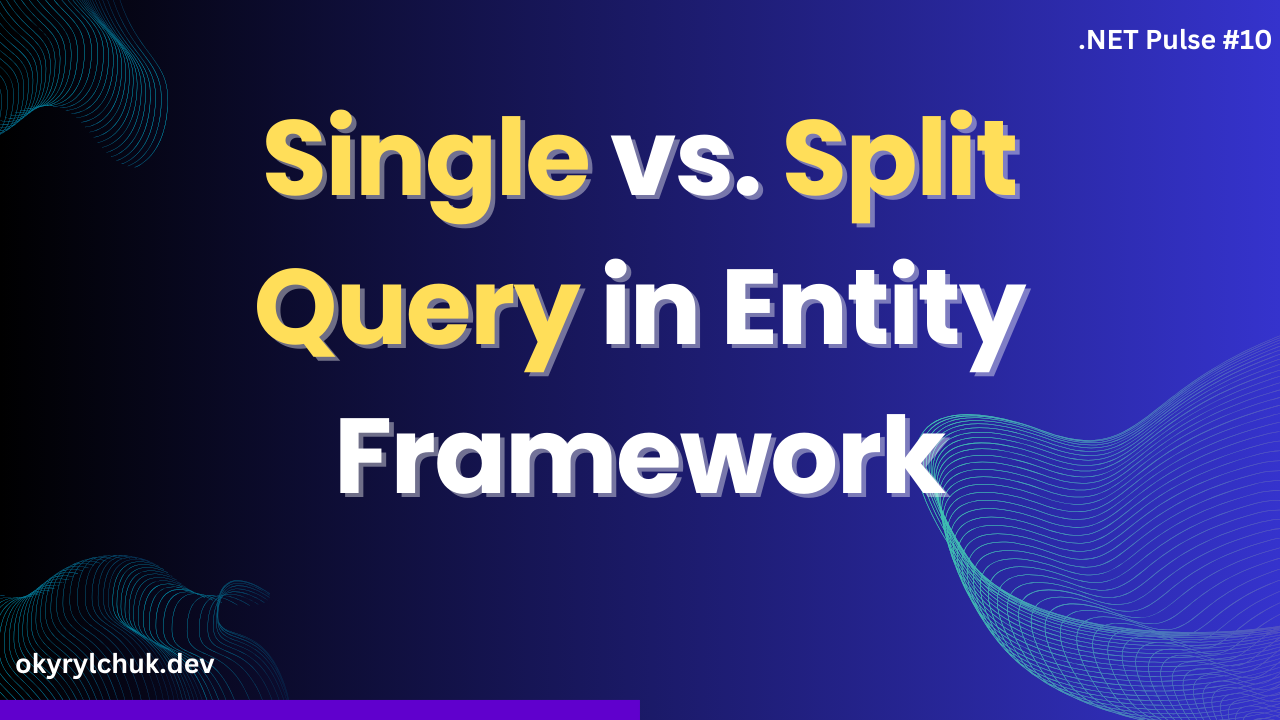Owned Types
To understand what are Complex Types, we need to recall about Owned Types.
The Owned Types have been released with Entity Framework Core 2.0. This feature allows you to model entity types that can only ever appear on navigation properties of the entity types (owners). You cannot create a DbSet<T> for Owned Types.
The Owned Types is a good choice for representing Value Objects in DDD. They have a one-to-one relationship with the owner. You don’t have to define a primary key for them. However, if you want a list of Owned Types, you need to define a primary key, and EF Core will create a one-to-many relationship.
But let’s return to the more straightforward example of a one-to-one relationship between owner and owned type. If you don’t add one, EF Core will add a primary key as a shadow property to track the owned types. And that’s why you cannot share instances of owned types by multiple owners.
Let’s see this limitation in the example. Assume we have a Company and Office entities. Both of them have Addresses. Even more, the Office entity has two addresses – Headquarters and Location. The Company has a list of Offices.
public class Address
{
public string Street { get; set; }
public string City { get; set; }
public string ZipCode { get; set; }
}
public class Office
{
public int Id { get; set; }
public string Name { get; set; }
public Address Location { get; set; }
public Address Heardquarters { get; set; }
}
public class Company
{
public int Id { get; set; }
public string Name { get; set; }
public Address Address { get; set; }
public IList<Office> Offices { get; set; } = new List<Office>();
}Let’s configure the Address entity as Owned Type of Company and Office.
protected override void OnModelCreating(ModelBuilder modelBuilder)
{
modelBuilder
.Entity<Company>()
.OwnsOne(p => p.Address);
modelBuilder
.Entity<Office>()
.OwnsOne(p => p.Location);
modelBuilder
.Entity<Office>()
.OwnsOne(p => p.Heardquarters);
}Now, we want to create a company with a headquarters office. It’s the same address. So let’s do it.
Address address = new()
{
Street = "123 Main St",
City = "Springfield",
ZipCode = "12345"
};
Company company = new()
{
Name = "Contoso",
Address = address
};
company.Offices.Add(new Office
{
Name = "HQ",
Location = address,
Heardquarters = address
});
context.Companies.Add(company);
await context.SaveChangesAsync(); This code won’t work. You’ll get the following error:
System.InvalidOperationException: Cannot save instance of ‘Office.Location#Address’ because it is an owned entity without any reference to its owner. Owned entities can only be saved as part of an aggregate also including the owner entity.
It happens because a single instance of the Address entity type (with the same hidden key value) is used for three different entity instances. This is a place where Complex Types come for help.
Complex Types
The Complex Types are similar to Owned Types. They must be defined as part of the entity type.
The key difference is that Complex Types have no hidden key value.
Therefore, they can be shared by multiple entity instances.
Let’s fix our application with the Complex Types.
protected override void OnModelCreating(ModelBuilder modelBuilder)
{
modelBuilder
.Entity<Company>()
.ComplexProperty(e => e.Address);
modelBuilder.Entity<Office>(o =>
{
o.ComplexProperty(e => e.Location);
o.ComplexProperty(e => e.Heardquarters);
});
}If you’re a fan of mapping attributes, you have a new ComplexAttribute attribute.
[ComplexType]
public class Address
{
public string Street { get; set; }
public string City { get; set; }
public string ZipCode { get; set; }
}Sharing the same Complex Type instances can cause an issue with its updating. Modifying it will generate the update for all places where it’s used. That’s why it’s recommended to make Complex Type immutable.
The Complex Types have limitations in this release. Some gaps will be closed in future releases. You can vote on the GitHub issues you want to see as improvements:
- Support collections of complex types. (Issue #31237)
- Allow complex type properties to be null. (Issue #31376)
- Map complex type properties to JSON columns. (Issue #31252)
- Constructor injection for complex types. (Issue #31621)
- Add seed data support for complex types. (Issue #31254)
- Map complex type properties for the Cosmos provider. (Issue #31253)
- Implement complex types for the in-memory database. (Issue #31464)

